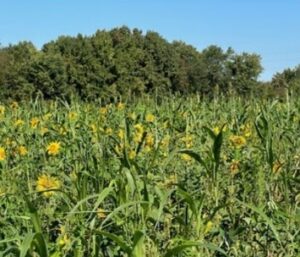STOP THE BLEED TRAINING
FOR FARMERS AND THE AGRICULTURAL COMMUNITY
REGISTRATION REQUIRED – NO COST
REGISTER USING THIS LINK OR QR CODE:
https://go.rutgers.edu/stopthebleed
DATE: MONDAY, FEBRUARY 2, 2026 TIME: 9:00AM
LOCATION: GLOUCESTER COUNTY OFFICE OF GOVERNMENT SERVICES
1200 N. DELSEA DR., CLAYTON, NJ
Rutgers Cooperative Extension’ Farm Health and Safety Team has partnered with the Gloucester County Emergency Services to provide “Stop the Bleed” training for the farming community.
Don’t miss this opportunity to learn the life-saving skills of pressure application, wound packing, and use of tourniquets. The first 25 registrants will also receive a complementary bleeding control kit.
Space is limited, register today.
If you have questions contact Rutgers Cooperative Extension of Gloucester County 856-224-8040 ext. 1 or email minfante@njaes.rutgers.edu
Rutgers Farm Health and Safety Team:
Agricultural Agents: Kate Brown, Michelle Infante-Casella, William Bamka, and Stephen Komar



 The Rutgers Office of Continuing Professional Education will host a course on ‘Spanish for Ag and Horticulture Workforce’ from January 16-March 6, 2026. This is an online, self-paced course with approximately 21 hours of course content designed to help participants study conversational Spanish and gain technical vocabulary specific to those in the agriculture and horticulture workforce.
The Rutgers Office of Continuing Professional Education will host a course on ‘Spanish for Ag and Horticulture Workforce’ from January 16-March 6, 2026. This is an online, self-paced course with approximately 21 hours of course content designed to help participants study conversational Spanish and gain technical vocabulary specific to those in the agriculture and horticulture workforce.